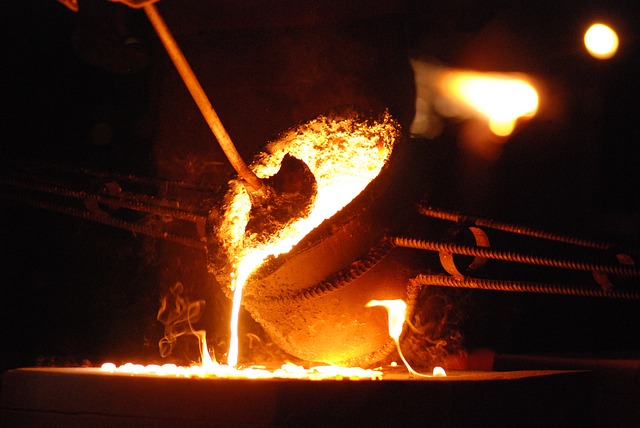
Dear Friends of the Pub Quiz,
Thanks to everyone who subscribes to the Pub Quiz via Patreon.
Back in the 1990s, everyone watched Seinfeld. This meant that conversationally, when people at the cocktail parties I attended (though this was before I drank cocktails) brought up a substantive, interesting, or literary topic, someone would inevitably say “Yes, and that’s like that one Seinfeld episode when . . . .” and then everyone would switch over to Seinfeld, abandoning the initial topic altogether.
In 2023, we’ve seen the same phenomenon, except that these days conversations that start on one particular topic end up being hijacked by talk of AI, especially ChatGPT. So when I gave a noon talk today on “Generative AI in Higher Education,” 92 people joined me in the Zoom room.
Calling back to my work as a graduate student who studied both structuralism and deconstruction as I tried to make, frame, and then challenge “meaning” in the current era, I asked my audience to follow me though the swirling cosmos of current talk about AI, where I imagined binary oppositions could help us understand various actors’ AI philosophies, policies, discoveries, and tensions.
Regarding binary oppositions, I asked my audience to consider the AI cheerleaders and the prohibitors, the AI destigmatizers and the scolders, the AI futurists and facilitators, the AI Tool-Users and the AI Replacement Fusspots, and the Boomers and the Doomers.
Learning designer and scholar Dr. Philippa Hardman categorizes AI folks into three camps: Team Avoid, Team Ban, and Team Embrace. Hardman and I both think that while most of us who must negotiate with and navigate generative AI have once found ourselves in one of the first two camps, more and more of us will capitulate and join Team Embrace.
In my talk, I included a number of quotations, as I do in these newsletters. Will Hunting appeared, chastising a Harvard graduate student with these words: “You wasted $150,000 on an education you coulda got for $1.50 in late fees at the public library.” Notably, Will Hunting did not own a TV set.
As we are about to celebrate the one-year anniversary of ChatGPT, with which many of us have had long conversations that have functioned as computer programming, I also think of Andrej Karpathy, the academic who designed and was the primary instructor for the first deep learning class Stanford. He says, “In this era, the hottest programming language isn’t code but the English language itself.” As a poet who writes exclusively in English, I can support this trend.
One programmer created a GPT (sponsored by OpenAI) called “Flow Speed Typist.” Imagine typing your freeform documents without the shackles of accuracy concerns, for the AI interprets what you likely meant and then substitutes those words wholesale. All of us could type blind, and as quickly as possible. I usually depend upon my wife Kate to finish my thoughts for me, but I suppose an AI could also give it a try.
As I concluded my talk, the Zoom chat buzzed with comments and curiosity about how generative AI might challenge some pedagogical practices and enhance others. We must keep at this work, ask challenging questions, and provide guardrails that will protect us all, such as from Q-Star (OpenAI), and, as announced today, the AI business assistant Q from Amazon.
I will finish with some words by J. Orville Taylor , the now forgotten proponent of public education. In an 1838 meeting, he said this about the need for schools: “We must agitate—agitate. The cause of education is like a top; the moment you cease to whip, it falls.—We must not only ‘strike while the iron is hot,’ but we must make it hot, and keep it hot by striking.”
Here’s to hoping that all your irons remain hot.
If you are in Davis tonight, please join us at 7 for the Pub Quiz at Sudwerk. Recruit a team, dress for sunset, and join us at the beautiful outdoor patio where we have room for almost everyone. Latecomers will find a table to play inside. Even though it is more work for me, we always have more fun with the bigger crowds and more voices. As Helen Keller says, “Alone, we can do so little; together, we can do so much.”
In addition to topics raised above, tonight’s pub quiz will feature questions on sun stories, quarantines, people named Carter, musical groups, excitements in Denver, official languages, guitarists with repeating letters in their names, ungulates, grandchildren of famous people, periods of time, scatter-brained actresses, musical instruments, palaces, Golden Raspberry nominees, questions of access, famous prophets, European countries, football teams, right and left hands, neighborhood heartbeats, the nature of water, places that start with W, things that taste awful, prompts, clever NPR headlines, usual words, four cities (Albany, Atlanta, Bakersfield, Pittsburgh), astronauts, local crimes, play demarcations, current events, books and authors, and Shakespeare.
Thanks to The Original Vincibles, Summer Brains, The Outside Agitators, Quizimodo, Gena Harper, a new guy named Spencer (welcome!) and others who support the Pub Quiz on Patreon. We also had the Vikstroms join us last week. I would love to add your name or that of your team to the list of supporters. I appreciate your backing this pub quiz project of mine!
Best,
Dr. Andy
P.S. Here are three questions from last week’s Pub Quiz:
1. Internet Culture. As of this morning at 11 AM, who is the CEO of OpenAI? Sam Altman
2. Newspaper Headlines. We learned this week that the second presidential debate in 2024 will take place on October 1 at Virginia State University in Petersburg, Virginia. With regard to presidential debates, what is novel or unprecedented about Virginia State University? Virginia State University will be the first historically black college or university to ever host a general election debate
3. Assets. What S-word do we use In the United States for a tradable financial asset of any kind? Security / Securities



